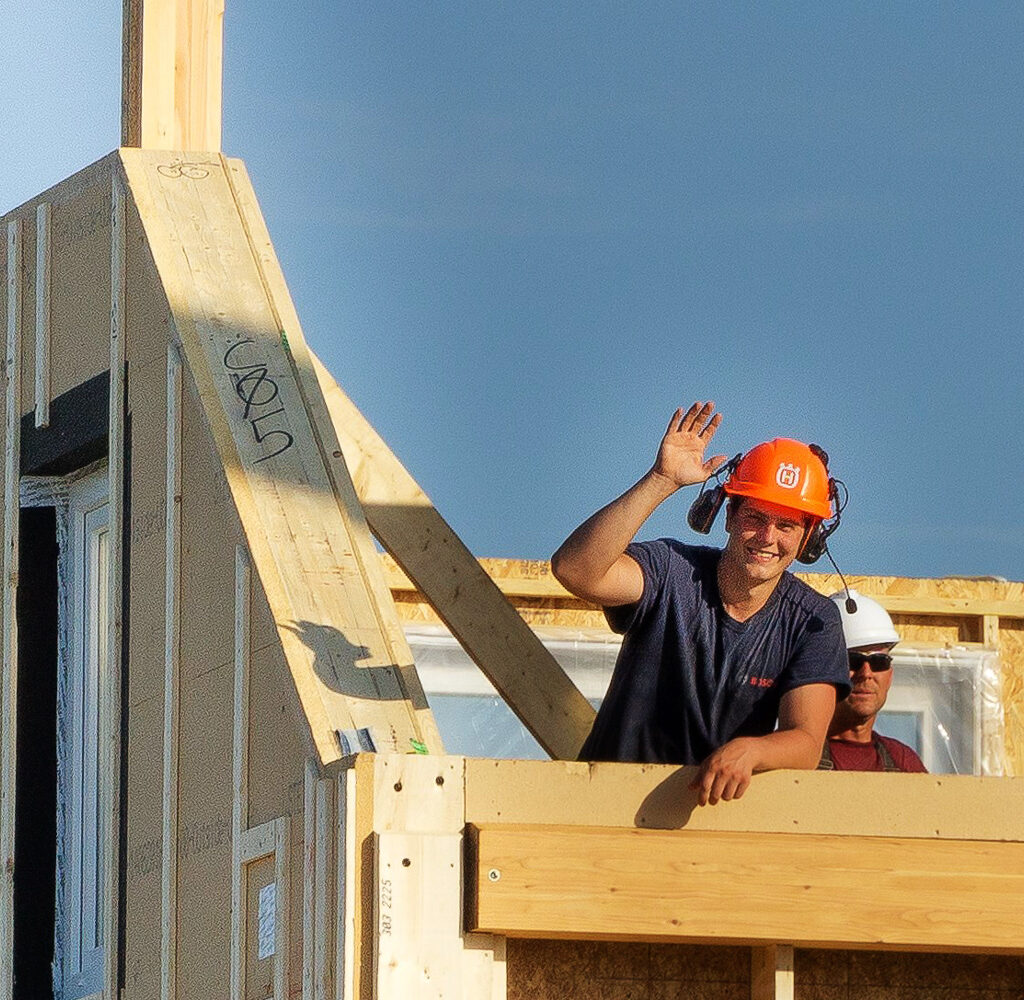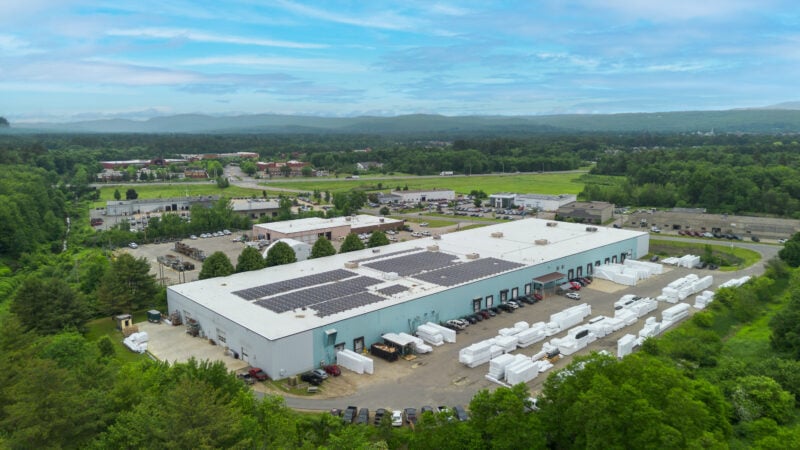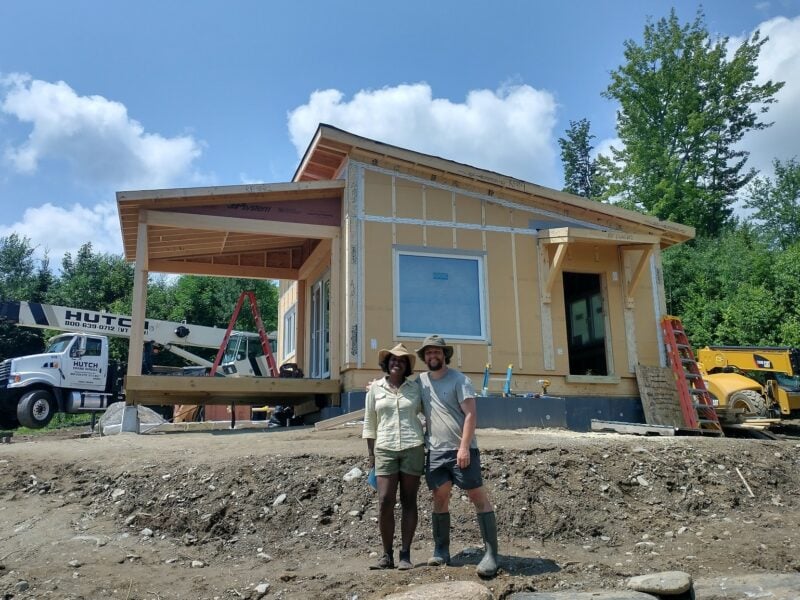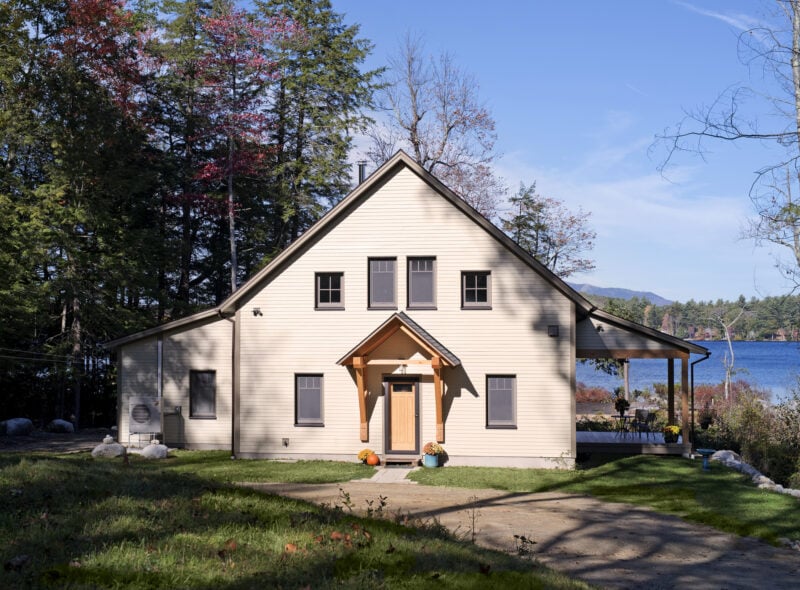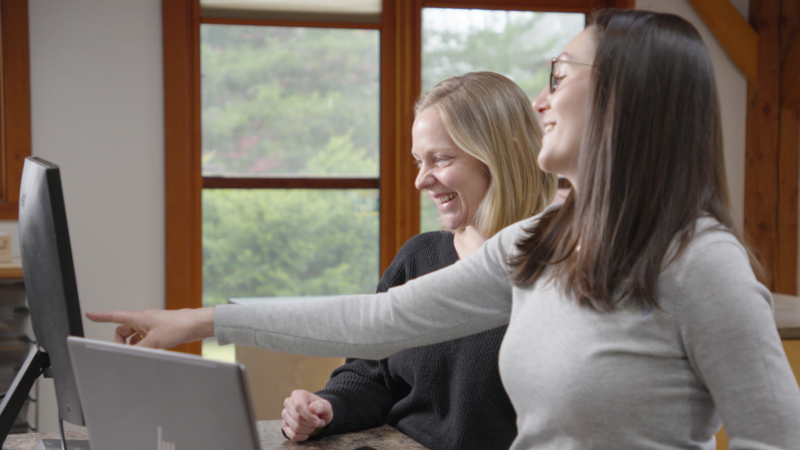Choosing the builder or general contractor (GC) when building a new high-performance Unity Home is one of the most important factors for a successful outcome. This process is why we provide clients with pre-vetted options for builders based in their area, so they can choose from a curated list and avoid the stress of finding a builder on their own.
Each project needs a local builder to join the team as they install the foundation and finish the home after we assemble the weather-tight building shell and interior partition wall framing. While clients have the final decision as to which pre-vetted builder they ultimately work with, Unity makes the process easy by providing a list of trustworthy builders with specific experience building high-performance homes.
WHEN TO CONNECT WITH A BUILDER

Unity typically provides options for pre-vetted builders once a client enters the initial design phase, as working with the builder early on is beneficial. This early collaboration facilitates a smoother construction process tailored to meet the unique requirements of each project. Occasionally, there may be clients building in remote locations where we haven’t previously worked with a specific builder. In these instances, we assist in researching a builder through our extensive network, trade partner organization referrals, and peer networks focused on green building techniques. This ensures that even in the most unique circumstances, homeowners receive expert support that aligns with our high standards.
Finding a builder early in the home building process is crucial to ensure the builder’s timeline aligns with our fast-moving offsite prefabrication schedule and scope estimates to fit the client’s budget. Unity employs a proven process that effectively coordinates architects, general contractors, and homeowners across the nation. This coordination guarantees a thorough, comprehensive, and energy-efficient finished product that homeowners can enjoy for generations.
Our approach mitigates common challenges such as project creep, delays, and issues with material shipments. By managing these aspects meticulously, Unity ensures that the construction progresses smoothly without unexpected setbacks. The integration of our pre-vetted builders with our own project management team allows us to oversee all phases of construction, from initial design through to the final touches, ensuring that every home meets our rigorous standards for sustainability, efficiency, and design excellence.
HOW UNITY VETS BUILDERS
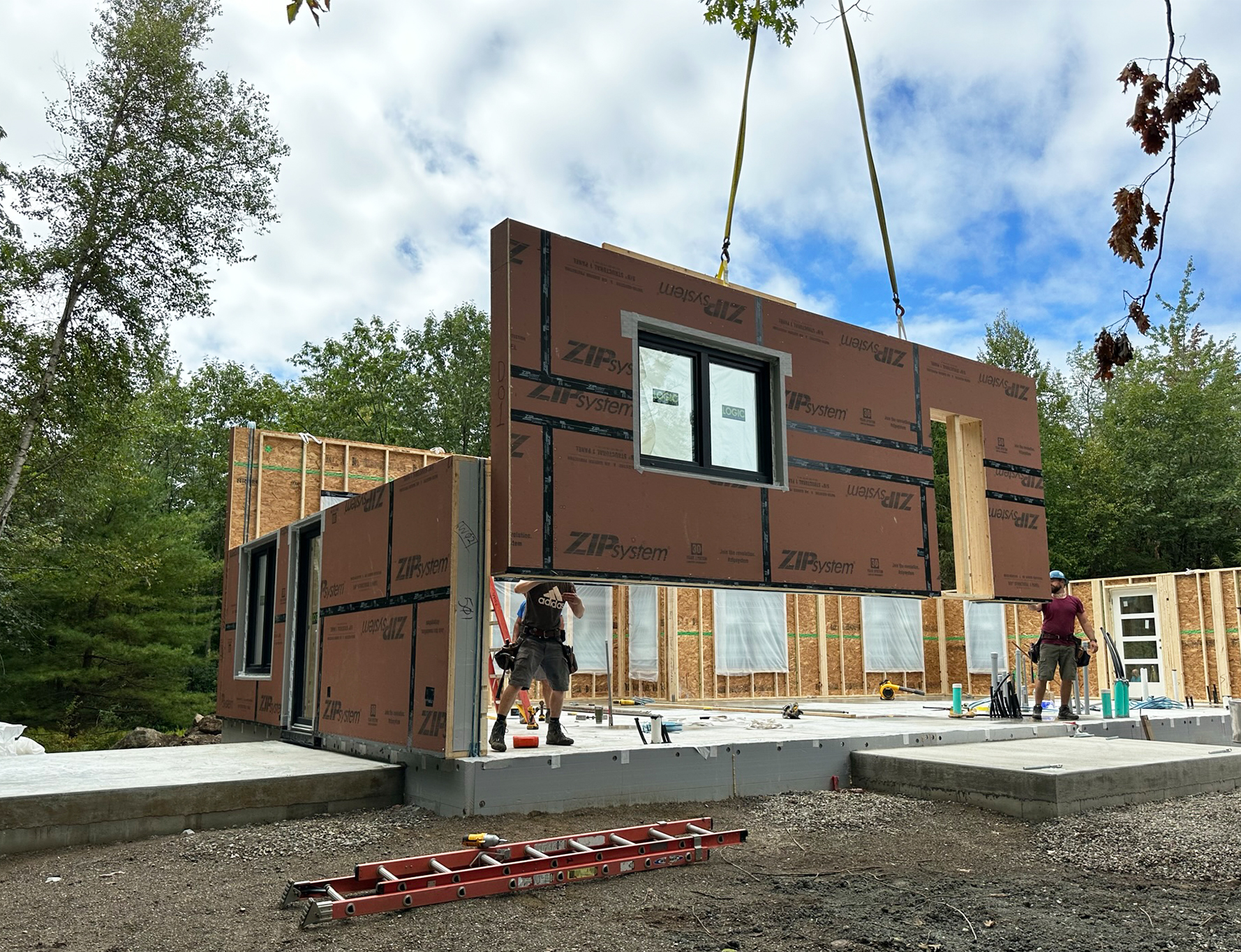
There are a lot of decisions to make when building a home, which is why personal chemistry between the client and the builder is key. Ensuring a good communication flow and value alignment from the beginning will create a solid foundation for the relationship. Builders vary in experience, knowledge, and skills, especially when it comes to high-performance homes.
This process is why Unity pre-vets builders to ensure a quality experience and a quality finished home. We can also put clients in touch with other past clients who have worked with the same builder they are considering so they can get additional feedback as they weigh their options. We have a rigorous and thorough vetting process to ensure a positive experience for clients, evaluating the builders by asking the following questions:
- How do they ensure their projects stay on time and budget?
- Have they built a high-performance or energy-efficient home before?
- How do they handle unexpected issues?
- How often do they plan to communicate and check in?
- How do they manage the finishing process and who does the work?
- Do they sub-contract all the work or self-perform some of it?
- Who does the site supervision and how often is that person on site?
- How long have key members of the builder’s team been working together?
- Who is the main point of contact?
- Do they have a regular meeting schedule during the project?
- Are they responsive?
HOW UNITY SUPPORTS HOMEOWNERS
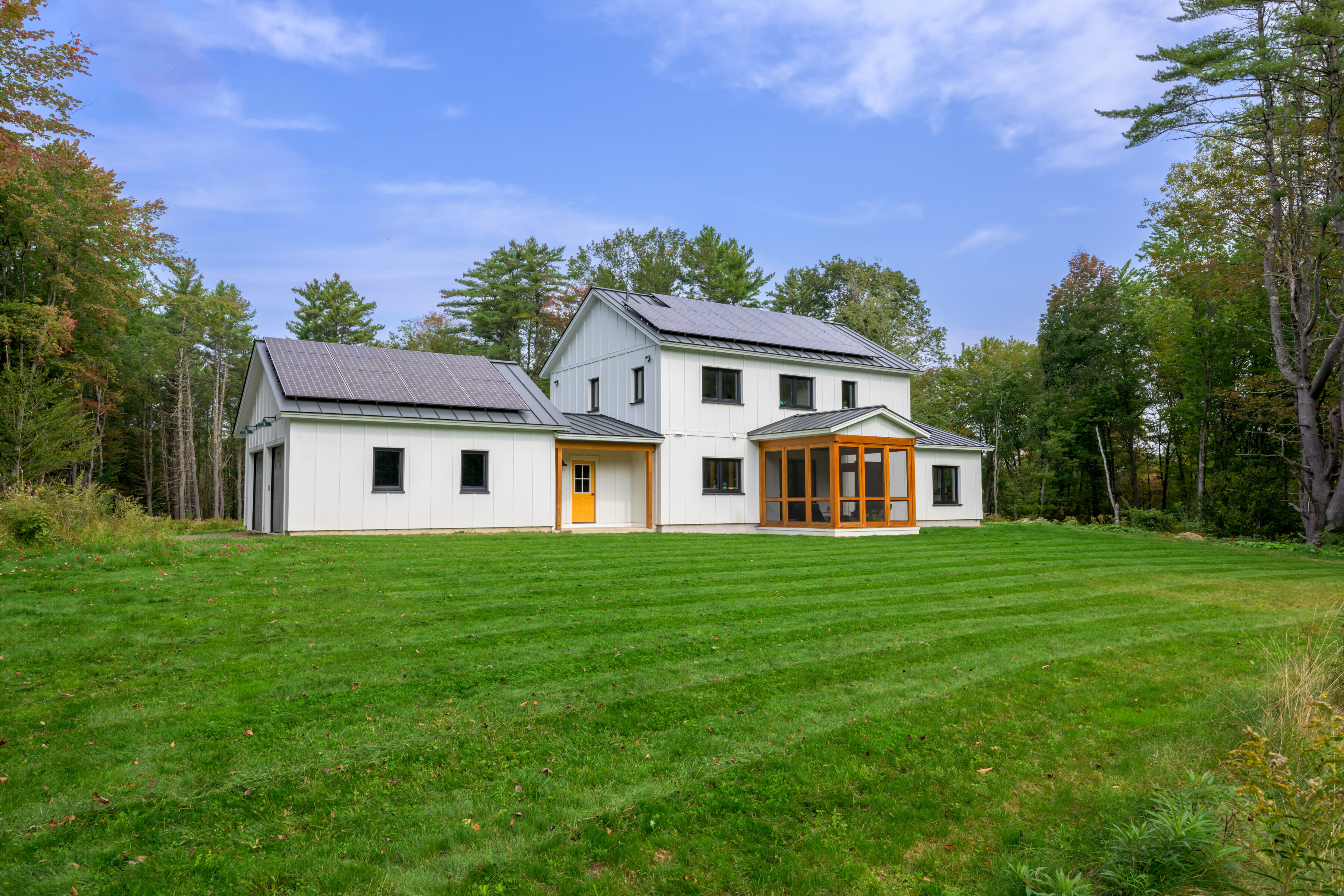
At Unity Homes, we prioritize the homeowner’s experience throughout the entire home-building process. Our approach is designed to ensure not only the delivery of a high-performance, sustainable home but also to provide support and peace of mind to homeowners every step of the way.
We understand that building a home can be a significant undertaking, which is why we strive to make the process as transparent and stress-free as possible. Unity provides homeowners with detailed plans and documentation, explains each step of the prefabrication and assembly process, and offers clear timelines and expectations. Our pre-vetted builders and the Unity team work closely to ensure that every aspect of the home meets our strict standards for quality and sustainability.
Furthermore, Unity supports homeowners in making informed decisions by providing access to our comprehensive knowledge base, including best practices in sustainable living and maintenance tips to ensure their home remains a source of pride and comfort for years to come. By choosing Unity Homes, homeowners are assured of a building partner who values their satisfaction and is committed to delivering a home that enhances their quality of life while reflecting their values of sustainability and efficiency.
HOW UNITY SUPPORTS BUILDERS
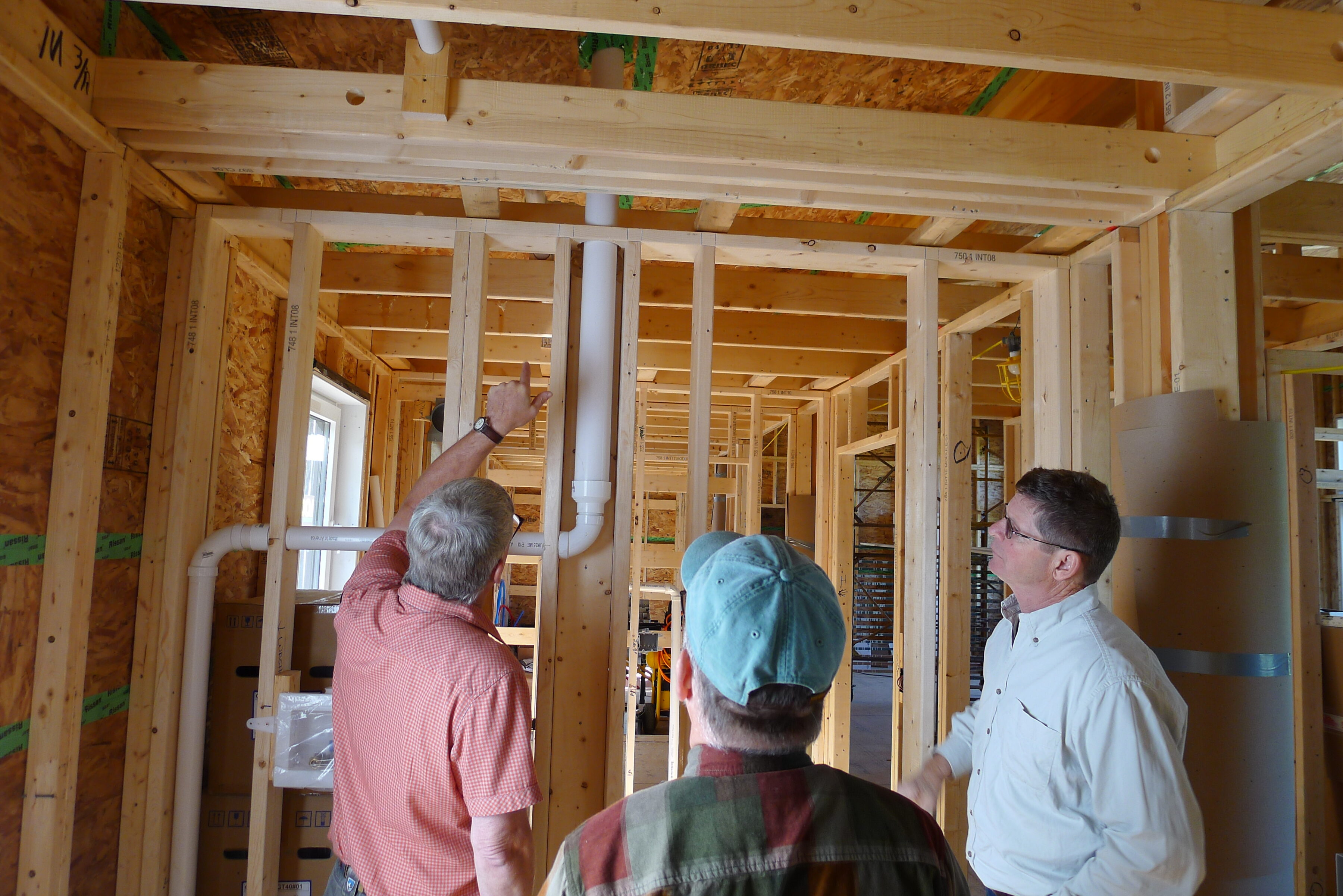
Unity provides extensive support and communication to builders throughout each project. Many of our pre-vetted builders have already built one or more Unity Homes and understand the building science behind energy-efficient homes. Each client also has a dedicated Project Manager who regularly meets and communicates with the builder and is always available to answer questions. We provide all the necessary documents for permitting, foundation work, and site work so everything runs smoothly ahead of the shell being raised. The envelope of the home is prefabricated offsite and assembled with Unity’s building system’s crew, which saves the builder a lot of time and effort. We think of our pre-vetted builders as partners, since we work closely together to build an energy-efficient home that will last for generations.
A LEGACY OF EXCELLENCE IN PREFABRICATED HOME BUILDING
Unity Homes has been a leader in the prefabricated home industry since its inception in 2012. As a spinoff from the renowned Bensonwood, founded in 1973 by Tedd Benson, Unity Homes carries forward a legacy of impeccable craftsmanship and innovative architectural design. Our mission is to craft high-performance, low-energy homes accessible to more people, combining sophisticated technology and advanced prefabrication methods.
What sets Unity Homes apart is our commitment to creating spaces that are not only energy-efficient but also beautifully designed and built to last for generations. Each home is crafted with the utmost attention to detail, ensuring that they meet the highest standards of home sustainability and comfort. Our homes are designed to reduce environmental impact significantly, enhancing the health and well-being of our clients while also promoting a sustainable future. We are dedicated to improving the quality of life for our clients by providing them with homes that are not just living spaces but lasting legacies.
